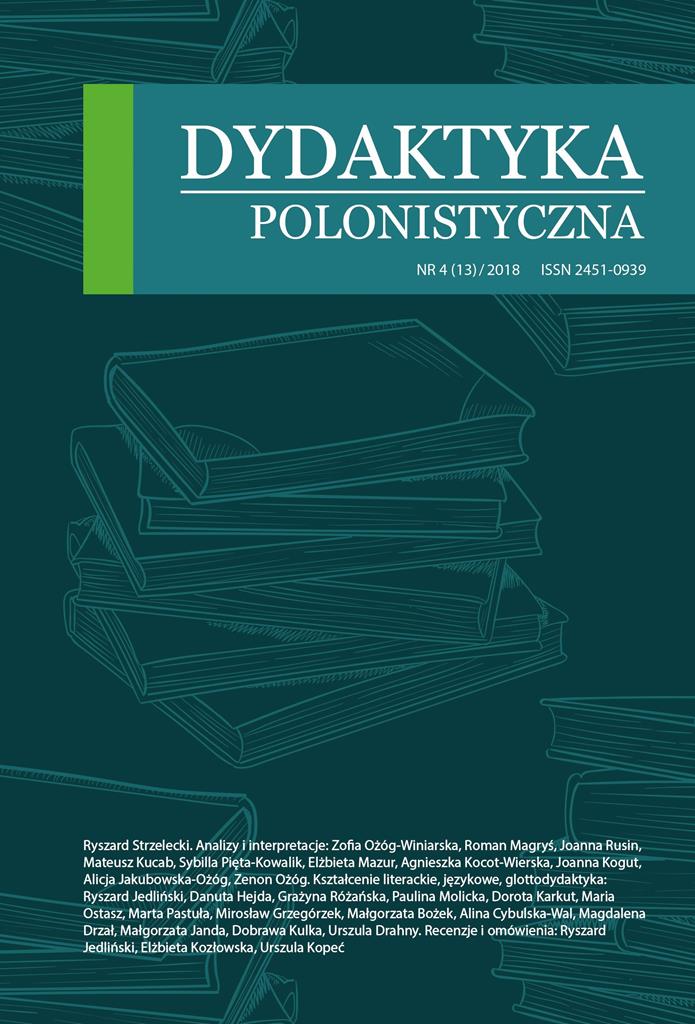Narodziny motywu faustycznego
DOI:
https://doi.org/10.15584/dyd.pol.13.2018.8Słowa kluczowe:
a myth, a legend, faustian motive, reinterpretations of the legend about faust, alchemyAbstrakt
Among literary motives forming the mythology of western culture the story of Faust is one of the most cited and most interpreted stories. Since 1587, when the history of the medieval alchemist named Faust was taken into print for the first time, many new versions of this legend have been released, often substantially diverging from the original. This article is an attempt to reconstruct the birth of Faustian motive, but also cultural and historical conditioning existing within its transformations. Using the works of authorities in the field of faustology, the author looks at key issues referring to the figure of the famous magus, such as: authenticity of Faust; his birth, place of residence, education and alchemic practice, relationships with other people and finally date, place and circumstances of his death. After this insightful introduction into the history of Faust, the author presents a concise summary and analysis of The History of Doctor Faustus (1587), which is a literary prototype of the legend about Faust. She finishes her article formulating her own hypothesis about the causes of never-ending attractiveness and significance of Faustian motive.Pobrania
Opublikowane
2018-12-15
Jak cytować
Kocot-Wierska, A. (2018). Narodziny motywu faustycznego. Dydaktyka Polonistyczna, 13(4), 92–114. https://doi.org/10.15584/dyd.pol.13.2018.8
Numer
Dział
ANALIZY I INTERPRETACJE


